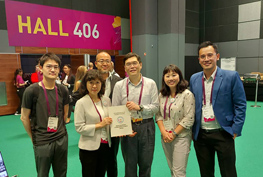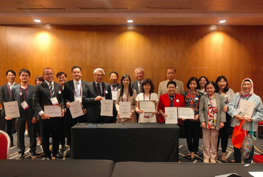Malignant hyperthermia (MH) is a potentially fatal pharmacogenetic disorder triggered by certain general anesthesia drugs. If not treated promptly, it can lead to circulatory collapse and death. The prediction and diagnosis of this disease mainly rely on genetic testing and clinical presentation. MH susceptibility (MHS) is usually caused by gene mutations, particularly in the RYR1 gene. Genetic testing can identify these mutations to determine whether an individual is susceptible to MH. These tests include:
Genetic Testing: Blood samples are collected and sent to a laboratory for genetic analysis.
In Vitro Contracture Test (IVCT): A small piece of muscle tissue is surgically removed and exposed to chemicals that trigger MH, observing the muscle's contraction response.
Clinical evaluation occurs during anesthesia or shortly after surgery. Clinical symptoms may include severe muscle rigidity, rapid breathing, irregular heart rhythm, and high body temperature. The use of Dantrolene, a specific treatment for MH, can also help rule out false positives and is an important diagnostic tool.
According to various reports, the incidence of MH reactions ranges from 1 in 5,000 to 1 in 50,000-100,000 anesthetic administrations. However, the prevalence of MHS is estimated to be as high as 1 in 839-3,000 individuals. Diagnosis of MH is based on clinical presentation or laboratory tests. However, due to the difficulty of obtaining comprehensive clinical data, diagnosing MH is often challenging, and it is not possible to predict with certainty. IVCT is currently the "gold standard" for diagnosing MH and can even be used for prediction. However, IVCT cannot be widely used due to its invasiveness, high cost, and imperfect clinical correlation.
In 2022, through the efforts of Dr. Huei-Ming Yeh from the Department of Anesthesiology at National Taiwan University Hospital and Dr. Pei-Lung Chen from the Institute of Genomic Medicine, along with the support and agreement of anesthesiologists and researchers from various countries, regular meetings were initiated. In 2024, the Asian Malignant Hyperthermia Alliance (AMHA) was established during the World Congress of Anesthesiologists in Singapore, and a memorandum of understanding was signed. The alliance agreed to create a shared platform in Taiwan to facilitate communication and support for communities across Asia, Europe, America, and the Pacific regions.
-

2024/03/04 Core members discussion
-

2024/03/05 WCA photo after MH oral presentation
-

2024/03/05 WCA Welcome Gala Dinner
-

2024/03/05 WCA Welcome Gala Dinner
-

2024/03/05 WCA Welcome Gala Dinner
-

2024/03/05 WCA Welcome Gala Dinner
-

2024/3/6 AMHA Group photo at the signing site (WCA 2024 Singapore)
-

2024/3/6 AMHA Memorandum of Alliance
This platform aims to enable anesthesiologists to share their experiences and methods for diagnosing and treating highly suspected cases of MH. It will also incorporate genetic research, aiming to diagnose patients with MH gene mutations and advance towards establishing a genetic database and family registry for preventive medicine, thereby reducing the loss of life and property for patients. Additionally, the AMHA website will provide the latest treatment methods, set standards for early detection and preventive measures, and offer interactive initial case screening. It will also facilitate advanced research and collaboration with the European Malignant Hyperthermia Group (EMHG) and the Malignant Hyperthermia Association of the United States (MHAUS), creating a platform for exchange and support among anesthesiologists worldwide.
